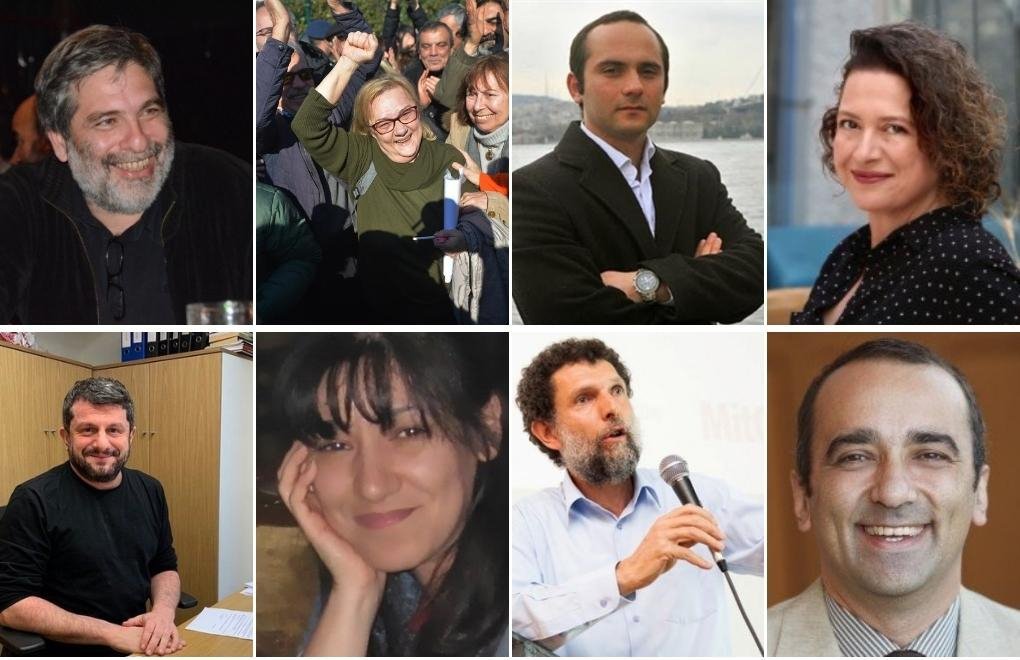A Turkish court on Tuesday rejected an objection to the arrest of eight defendants including prominent businessman and civil society leader Osman Kavala in a trial concerning the Gezi Park protests of 2013, Turkish media outlets reported.
An İstanbul court on April 25 sentenced Kavala, who had been behind bars without a conviction for over four years, to aggravated life on charges of “attempting to topple the government,” while sentencing seven other defendants to 18 years each on charges of aiding the attempt. The seven defendants, Mücella Yapıcı, Can Atalay, Tayfun Kahraman, Çiğdem Mater, Mine Özerden, Hakan Altınay and Yiğit Ali Ekmekçi, were jailed following the court’s decision.
The ruling sparked international condemnation as well as protests across Turkey for being politically motivated.
The defendants filed an objection to their arrest at a higher court, the İstanbul 14th High Criminal Court. However, the court unanimously turned down their objection to the arrest decision of the İstanbul 13th High Criminal Court on the grounds it found no flaws in the lower’s court’s ruling in legal or procedural terms.
The Gezi Park demonstrations, which took place in the summer of 2013 in reaction to the Justice and Development Party (AKP) government’s attempt to destroy one of the few green spaces left in İstanbul, quickly turned into a nationwide protest against the authoritarian policies of then-prime minister and current president Erdoğan.
Eleven protestors died and thousands more were injured as they were brutally suppressed by the police on Erdoğan’s instructions.
A leading figure in Turkey’s civil society, 64-year-old Kavala was born in Paris, educated in the UK and ran a cultural center before being thrust to prominence. He was accused of financing protests against then-prime minister Erdoğan’s government during large-scale protests in 2013 and involvement in a failed military coup in 2016. The latest ruling only covered the case stemming from the 2013 unrest.
Kavala’s plight had soured relations between Ankara and Western nations, and a diplomatic crisis was triggered last year when Turkey threatened to expel 10 Western ambassadors, including the US envoy, after they demanded Kavala’s release.


